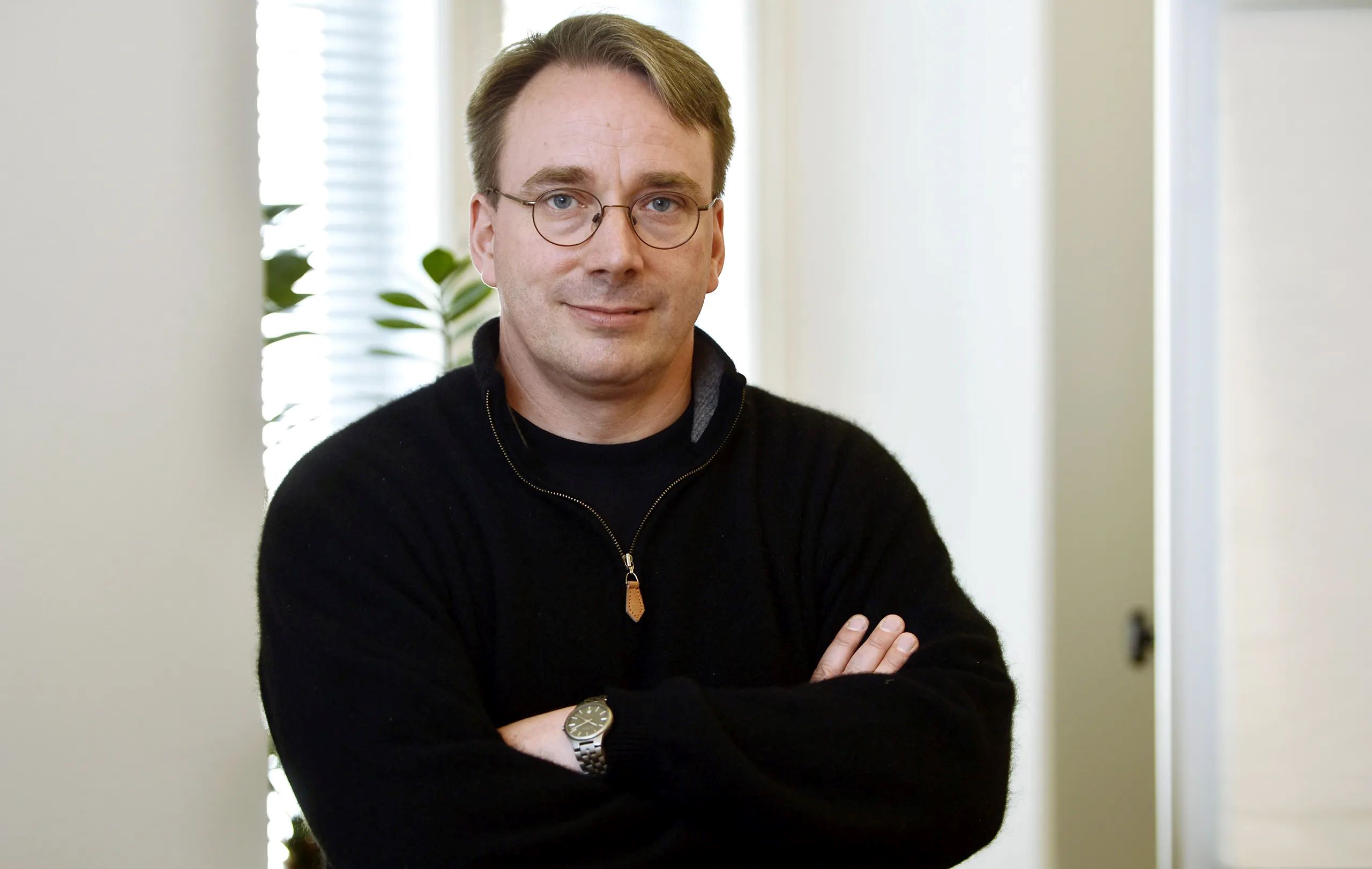Linus Torvalds - The Linux Kernel's Architect
Have you ever wondered about the person who helped shape much of the digital world we interact with every single day? It's almost incredible, but a person born in Helsinki, Finland, on December 28, 1969, truly started something big. This Finnish computer person was the main force behind the creation of a computer operating system that many people use without even knowing it.
You see, what this individual set in motion, is that it really changed how we think about computer programs. For more than thirty years, from its really small beginnings to becoming a huge presence everywhere, this person led a kind of quiet rebellion in the world of software. It’s a story about how sharing ideas and working together can make something truly powerful.
His efforts, and the movement that grew from them, forever changed how we approach our digital tools. It's about more than just one program; it's about a whole way of thinking about how computer instructions are put together and shared. You can, in fact, look at his work on places like GitHub, where his various collections of code are available for people to see.
- Fap Hero Defiance
- Dee Dee Blanchard Crime Scene Photos
- Undeadem Onlyfans Leak
- Danielle Renae Feet
- Tram Pararam 2025
Table of Contents
- The Life Story of Linus Torvalds
- How Did Linus Torvalds Start His Work?
- What Else Did Linus Torvalds Create?
- What is the Impact of Linus Torvalds' Creations?
The Life Story of Linus Torvalds
Let's spend a little time getting to know the person behind some really important computer programs. Linus Torvalds, born on December 28, 1969, in Helsinki, Finland, is a person who works with computers and their ideas. He was the main person who got things going with the creation of the Linux operating system. His story is one of curiosity, a bit of determination, and a strong belief in sharing. He grew up in a place where technology was becoming a bigger part of daily existence, and he found himself drawn to how computers worked, you know, what made them tick.
From his earlier days, it seems, Linus had a knack for understanding how to put together computer instructions. This natural talent, combined with a desire to build things that were truly useful, set him on a path that would, in some respects, alter the course of computing for many. His journey isn't just about lines of code; it's about a vision for how software could be built and shared by a community, rather than kept locked away by a few. It’s quite a tale, really, about how one person’s project became a global effort.
People often recognize Linus Torvalds for making the core part of the Linux system. But, as a matter of fact, he also made something called Git, which is a system for keeping track of changes to computer code. This second creation is used a whole lot by people who build software all over the planet. So, when you hear about him, it's not just about Linux; it's about these two really influential contributions to how we create and manage digital tools.
Personal Details for Linus Torvalds
| Full Name | Linus Benedict Torvalds |
| Date of Birth | December 28, 1969 |
| Place of Birth | Helsinki, Finland |
| Nationality | Finnish |
| Known For | Creator of the Linux kernel and Git |
| Profession | Software Engineer, Computer Scientist |
How Did Linus Torvalds Start His Work?
It’s quite interesting, how something so widely used today began as a personal project for Linus Torvalds. He was, apparently, just a university student in Finland, tinkering with his computer. He wanted a computer system that really suited his needs, something that felt more open and adaptable than what was available at the time. This desire for a more personal computing experience led him to begin putting together a new operating system core, a bit at a time. It wasn't about building a massive company; it was more about solving a problem for himself and, as it turned out, for many others too.
He started this work in 1991. The way he approached it was, in a way, quite different from how things were typically done. Instead of keeping his creation to himself, he decided to share it with the world. He put the main part of the system, which he called the kernel, online and asked other people who write code to make it better. This simple act of sharing was, frankly, a huge turning point. It invited collaboration on a scale that was pretty new for software development.
This openness, this willingness to let others contribute, was a really big deal. It meant that instead of just one person or one small group working on something, a whole collection of people from all over could pitch in. This approach helped Linux become something that cost nothing, was well-liked, and quite dependable. So, it wasn't just about his initial idea; it was about the community that gathered around it, all thanks to Linus Torvalds' initial decision to share his work.
The Beginnings of Linux by Linus Torvalds
The story of Linux truly begins with Linus Torvalds' personal quest for a better operating system. He was working with a system called MINIX, but he felt it had limitations. He wanted something that offered more freedom, something he could truly make his own. So, he started building his own core system, piece by piece, as a hobby project. This was in 1991, and he was, you know, just a student at the University of Helsinki.
What's really special about this beginning is how he decided to handle his creation. Instead of keeping it under wraps, he made a public announcement. He posted a message online, sharing his project and inviting others to join in. This invitation to collaborate was, in fact, a pretty bold move for the time. It set the stage for what we now know as the open source movement, where computer code is shared freely and worked on by a global community.
The core part of the system he created, the kernel, was named Linux, a playful combination of his first name and "Minix." This kernel became the central piece around which a whole operating system could be built. The idea was that anyone could look at the code, suggest changes, and even add their own improvements. This collective effort, which Linus Torvalds oversaw, allowed Linux to grow and become incredibly versatile and stable, something that could run on a vast array of machines, from tiny devices to giant servers.
What Else Did Linus Torvalds Create?
Many people know Linus Torvalds for Linux, of course, but his influence on the world of software doesn't stop there. He also gave us another really important tool, one that helps computer programmers manage their work in a way that was, honestly, quite revolutionary. This tool is called Git. It’s a system that keeps track of every change made to a set of computer instructions, making it much easier for many people to work on the same project without stepping on each other's toes.
You see, before Git, managing changes in large software projects could be, well, a bit messy. When many people are writing code for the same program, keeping track of who changed what, and making sure everyone has the most current version, can get complicated. Linus, apparently, faced this problem himself when managing the Linux kernel, which had grown to involve thousands of contributors from all over the globe. He needed a better way, and so, he built one.
Git was created in 2005, specifically to help with the development of the Linux kernel. It was designed to be fast, efficient, and good at handling very large projects with many people working on them at once. The fact that it was made to solve a real, pressing problem for the Linux community meant it was built with practical needs in mind. It quickly became a standard tool for software teams everywhere, showing just how much one person's practical solution can help so many others.
Linus Torvalds and the Birth of Git
The creation of Git by Linus Torvalds is, in a way, a testament to his problem-solving approach. As the Linux project grew, the existing tools for managing its development were just not cutting it. The sheer number of people contributing to the Linux kernel meant that keeping track of all the changes, and making sure everything merged together smoothly, was becoming a huge headache. He needed a better system for version control, something that could handle the immense scale and speed of Linux development.
So, in 2005, Linus decided to build his own. He wanted something that was distributed, meaning every developer would have a full copy of the project's history, allowing them to work offline and merge their changes later. He also wanted it to be incredibly fast. The result was Git, a system that, quite simply, changed how collaborative software development is done. It was built from the ground up to meet the specific needs of the Linux kernel project, but its utility quickly became clear to everyone else.
The way Git works, it focuses on the content of the files rather than just the changes, making it very efficient for storing and retrieving different versions of code. It also makes it easy to experiment with new features without messing up the main project, because you can create separate branches of code and then bring them back in later. This flexibility, along with its speed, made Git an incredibly popular choice. It’s now pretty much the standard for managing code in software projects around the globe, all thanks to Linus Torvalds seeing a need and creating a clever solution.
What is the Impact of Linus Torvalds' Creations?
It’s truly something to consider the vast reach of what Linus Torvalds put into the world. His work, particularly Linux, has had a ripple effect that touches nearly every corner of our digital existence. From the servers that power the internet, to the smartphones we carry in our pockets, and even the supercomputers that solve some of the world's biggest problems, Linux is often quietly running things behind the scenes. It's not always visible, but its presence is, very, very widespread.
The decision to make Linux open source was, in fact, a truly pivotal moment. It showed that software could be built and improved by a global community, rather than being the sole property of a single company. This model of collaborative development has inspired countless other projects and has changed the way many people think about intellectual property and sharing. It truly fostered an environment where innovation could flourish because ideas and code were freely exchanged.
And then there's Git. While Linux changed what operating systems could be, Git changed how we build them, and frankly, how we build almost any piece of software today. It made it much easier for large groups of people to work together on complex codebases, allowing for faster development cycles and more robust software. So, you see, Linus Torvalds didn't just create two important pieces of software; he created foundational tools and a philosophy that reshaped the entire landscape of how we create and share digital things.
The Open Source Movement and Linus Torvalds
The open source movement, in many ways, found its strongest advocate and a prime example of its success through the work of Linus Torvalds. When he put the Linux kernel out there for anyone to use and improve, he wasn't just sharing code; he was inviting a different way of working. This idea, that software's underlying instructions should be openly available for people to look at, change, and distribute, was, you know, pretty radical at the time.
This approach meant that thousands of people, from all corners of the globe, could contribute their skills and time to make Linux better. This collective intelligence, this shared effort, allowed Linux to grow at an incredible pace and become incredibly stable and secure. It proved that a decentralized, community-driven model could create something just as good, if not better, than software built by traditional, closed development teams. It was, basically, a new kind of software insurgency.
The success of Linux, under the watchful eye of Linus Torvalds, provided a powerful example for other projects. It showed that open source wasn't just a quirky idea; it was a powerful way to build and maintain software. This has led to a whole ecosystem of open source tools and platforms that now underpin much of the internet and modern technology. His initial act of sharing, and his continued dedication to the open source philosophy, truly transformed our digital world, making it more collaborative and accessible for everyone.
This article has explored the life and key creations of Linus Torvalds, starting with his birth in Finland and his early work as a computer person. We looked at how he started building the Linux kernel as a personal project and how he made it available for others to contribute. The discussion also covered his other significant contribution, Git, a system for managing changes in software projects, which he developed to help with Linux itself. Finally, we examined the broad impact of his work on the open source movement and how his creations have influenced nearly every aspect of our digital lives.



Detail Author:
- Name : Madaline Hand
- Username : clair.crooks
- Email : douglas.shawn@yahoo.com
- Birthdate : 1991-11-25
- Address : 9979 Larkin Mountains Suite 904 Schadenchester, HI 32214
- Phone : +1-347-616-4558
- Company : Ward, Haley and Schuster
- Job : Bookkeeper
- Bio : Ipsa animi beatae autem id aut nihil accusantium natus. Consequatur et eos ratione facilis autem. Labore aliquam voluptatem aut beatae qui. Rem dolor non in.
Socials
tiktok:
- url : https://tiktok.com/@rhett7100
- username : rhett7100
- bio : Illum et vitae eius eos reiciendis libero reiciendis et.
- followers : 1147
- following : 757
instagram:
- url : https://instagram.com/rhett.jacobs
- username : rhett.jacobs
- bio : Dolores rerum in culpa rerum. Eum aut corrupti distinctio itaque.
- followers : 1665
- following : 2121
facebook:
- url : https://facebook.com/rhett_jacobs
- username : rhett_jacobs
- bio : Eum quasi alias quasi necessitatibus distinctio sunt sint optio.
- followers : 2452
- following : 1058
linkedin:
- url : https://linkedin.com/in/rhett_jacobs
- username : rhett_jacobs
- bio : Et nisi perferendis velit unde vel et quia.
- followers : 5471
- following : 1463